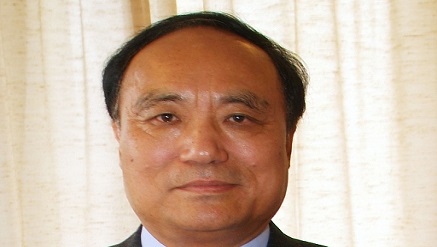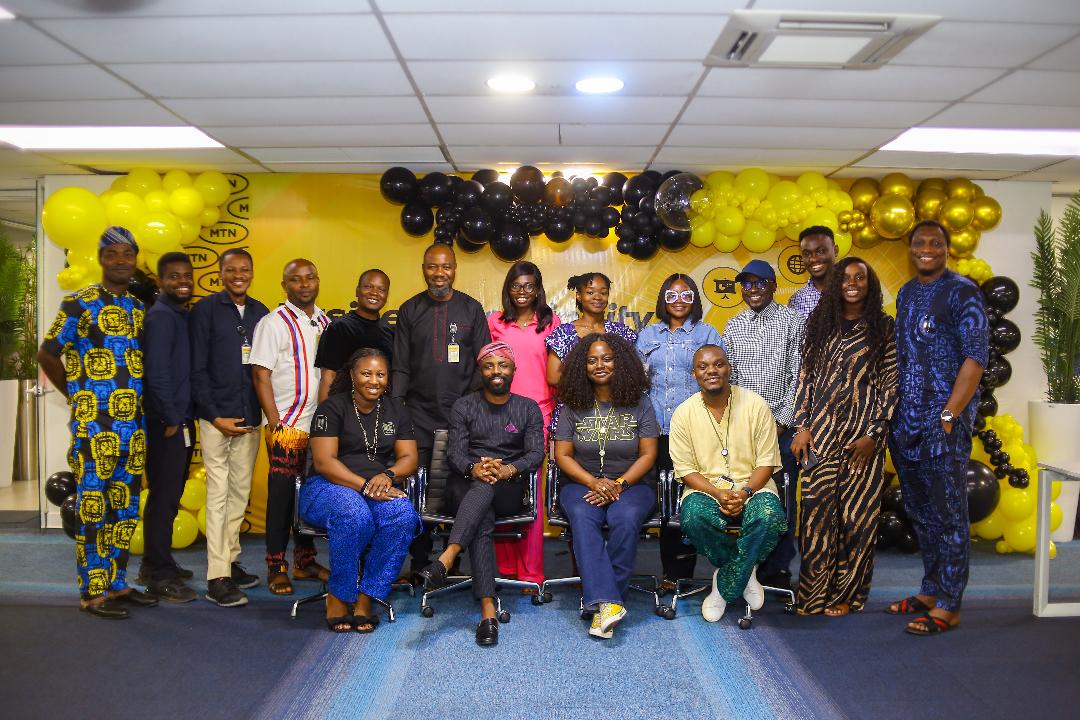Telecom
ITU standards to integrate Internet of Things in Smart Cities

ITU members have established a new ITU-T Study Group to address the standardization requirements of Internet of Things (IoT) technologies, with an initial focus on IoT applications in smart cities.
The new group is titled “ITU-T Study Group 20: IoT and its applications, including smart cities and communities”.
It will be responsible for international standards to enable the coordinated development of IoT technologies, including machine-to-machine communications and ubiquitous sensor networks.
The group will develop standards that leverage IoT technologies to address urban-development challenges.
A key part of this study will be the standardization of end-to-end architectures for IoT and mechanisms for the interoperability of IoT applications and datasets employed by various vertically oriented industry sectors.
The deployment of IoT technologies is expected to connect an estimated 50 billion devices to the network by year 2020, impacting nearly every aspect of our daily lives.
IoT is contributing to the convergence of industry sectors, with utilities, healthcare and transportation among the many sectors with a stake in the future of IoT technologies. The new ITU-T Study Group provides the specialized IoT standardization platform necessary for this convergence to rest on a cohesive set of international standards.
IoT technologies offer both developed and developing countries an opportunity to transform city infrastructure, benefiting from the efficiencies of intelligent buildings and transportation systems, and smart energy and water networks.
ITU is well positioned to assist government and industry in capitalizing on this opportunity.
“Building smart sustainable cities will require efficient collaboration between the public and private sectors,” said ITU Secretary-General Houlin Zhao.
“This new ITU-T Study Group will bring together a diverse selection of stakeholders, placing ITU’s technical expertise at the service of other industry sectors as well as the national and metropolitan administrations responsible for urban development.”
“The coming five years will be crucial in ensuring that IoT technologies meet their potential,” said Chaesub Lee, Director of the ITU Telecommunication Standardization Bureau.
“ITU-T is very active in IoT standardization, and we aim to assist cities around the world in creating the conditions necessary for IoT technologies to prove their worth in addressing urban-development challenges.”
In May, Dubai became the world’s first city to assess the efficiency and sustainability of its operations using the key performance indicators developed by the ITU-T Focus Group on Smart Sustainable Cities (FG-SSC).
The two-year pilot project will evaluate the feasibility of the indicators with the aim of contributing to their international standardization.
“Networks of IoT technologies will improve our understanding of how cities function, introducing many opportunities for efficiency gains,” said Nasser Almarzouqi of the Telecommunications Regulatory Authority of the United Arab Emirates, Chairman of the new Study Group.
“With participants representing the many stakeholders in the field of information and communication technologies, this Study Group will be influential in promoting the development of the highly efficient ‘systems of systems’ that will help bridge the digital divide and enable a more connected world.”
Telecom
Meta, FMCIDE Unveil AI Accelerator to Drive Innovation in Nigeria

Meta, in collaboration with the Federal Ministry of Communications, Innovation & Digital Economy (FMCIDE), has launched the Llama Impact Accelerator Program to foster AI-driven solutions across critical sectors in Nigeria.

The eight-month program will support early-stage startups developing AI innovations using Meta’s open-source Llama models. Target sectors include Agriculture, Security & Safety, Healthcare, and a wildcard category for other high-impact applications.
Speaking at the launch, Sade Dada, Head of Public Policy, Anglophone West Africa at Meta, emphasized the initiative’s role in advancing Nigeria’s digital ecosystem. “We are thrilled to partner with FMCIDE in supporting local AI talent. Open-source AI should be accessible and relevant to national challenges,” she said.
The program will begin with a six-week incubation period, offering technical training and mentorship from industry experts, followed by six months of extended support, including access to technical resources.
Minister of Communications, Innovation & Digital Economy, Dr. ‘Bosun Tijani, hailed the initiative as a “major step forward” in Nigeria’s AI development strategy. “AI will be a key driver of national growth, and this program equips innovators with the tools to tackle pressing issues,” Tijani stated.
The Llama Impact Accelerator aligns with Meta’s broader mission to democratize responsible AI access while fostering innovation in emerging markets.
In collaboration with academic and government stakeholders, the initiative is expected to accelerate Nigeria’s AI industry and drive impactful change.
Applications for the program remain open until June 27, 2025. More details can be found at llamaimpactssa.splashthat.com.
Telecom
Nigeria Leads the Charge in Green Innovation @MTN’s Africa PachiPanda Challenge

In an era where climate change, youth unemployment, and food insecurity loom large over the continent, a powerful new force is rising — young African innovators building a green future from the ground up.

At the just-concluded Africa PachiPanda Challenge 2024, organised by MTN and WWF (World Wide Fund for Nature), Nigerian entrepreneur, Olabisi Rafatu Emmanuel, emerged as one of the continent’s top eco-champions, spotlighting the potential of purpose-driven innovation to rewrite Nigeria’s climate and development story.
While Moses Afopezi of Cameroon took home the top prize with AgricFresh, a smart solution combating post-harvest loss, Olabisi’s reusable menstrual products solutions as a waste transformation model earned her national applause and a seat at Africa’s sustainability table, emerging as the second-place winner.
Speaking during the announcement, MTN’s leadership underscored that this challenge goes far beyond accolades. “Together, we have the power to shape a greener, more sustainable Africa — one bold idea at a time,” Nompilo Morafo, Group Chief Sustainability and Corporate Affairs Officer, MTN, said.
The triumph comes at a time when Nigeria is grappling with the environmental menace of climate change in major urban hubs like Lagos, Abuja, and Port Harcourt, even as the Nigerian government is clamouring for smart innovations to address climate change issues such as climate funding, carbon trading and just energy transition.
The National Environmental Standards and Regulations Enforcement Agency (NESREA) recently reiterated calls for tech-based waste management solutions – making Olabisi’s innovation timely and impactful.
MTN says this is just the beginning. With plans to expand the PachiPanda Challenge to more countries and deepen support for eco-entrepreneurs, the telecoms giant is reaffirming its commitment to socio-economic development through green innovation.
As Nigeria sets its sights on achieving the Sustainable Development Goals by 2030, the PachiPanda story is a timely reminder that the answers may lie not in government halls – but in the dreams and drive of Nigeria’s young changemakers.
Telecom
Innovation Will Shape Nigeria’s Digital Economy – A’isha Mumuni

MTN Nigeria has convened alumni of its Media Innovation Programme (MIP) for an interactive training session on digital monetisation in Nigeria’s Value-Added Services (VAS) sector.

The hybrid event, themed “Understanding Digital Monetisation: Opportunities in the VAS Space in Nigeria,” was led by A’isha Umar Mumuni, Chief Digital Officer, MTN Nigeria. Participants explored evolving digital revenue models, including mobile payments, subscription billing, and telco-backed content partnerships.
Mumuni emphasized the growing significance of digital innovation. “Innovation is the currency of the future,” she stated. She cited projections indicating Nigeria’s potential emergence as the world’s fifth-largest economy by 2075, with the digital economy at the forefront of this growth.
The session spotlighted MTN Nigeria’s role in enabling content creators through platforms such as Callertunes, MTN Play, and digital storefronts. Participants were grouped into breakout sessions where they pitched digital product ideas, fostering creativity and strategic thinking.
According to industry figures, Nigeria’s digital economy contributed 18.44 percent to GDP as of Q2 2022, with ICT revenue soaring from ₦51.3 billion to ₦594 billion over a decade. Global digital services revenue reached an estimated $2.58 trillion in 2024, driven by advertising, paid content, and internet access.
Now in its fourth year, MTN Nigeria’s MIP continues to equip media professionals with the knowledge and tools to thrive in a digital-first economy. The company reaffirmed its commitment to supporting its alumni through curated development sessions that empower media practitioners in Nigeria.
For further details on the MIP programme and upcoming alumni engagements, visit www.mtnmip.smc.edu.ng.

 General News2 days ago
General News2 days agoWema Bank Workers, Others Arraigned over Alleged N8.9Bn Cybercrime

 E-Financial2 days ago
E-Financial2 days agoCyber Crime: Hackers to Hold Secret Conference 3.0 July 25

 Telecom2 days ago
Telecom2 days agoGaps on Phone Number Recycling Fuel Identity Theft, Data Breaches- ICIR

 General News2 days ago
General News2 days agoMusic Stars, Comedians Light Up “Evening with Glo” in Ijebu Ode

 E-Business2 days ago
E-Business2 days agoFG Enrolls 59,786 Inmates on NIN Platform

 E-Financial2 days ago
E-Financial2 days agoSEC Flags ‘Punisher Coin’ As High-Risk Scheme

 Telecom1 day ago
Telecom1 day agoTelcos Hit by Major Outages across Lagos, Enugu, Others

 News1 day ago
News1 day agoBeware!, Fraudsters Using our Name to Defraud Investors- NNPCL
















